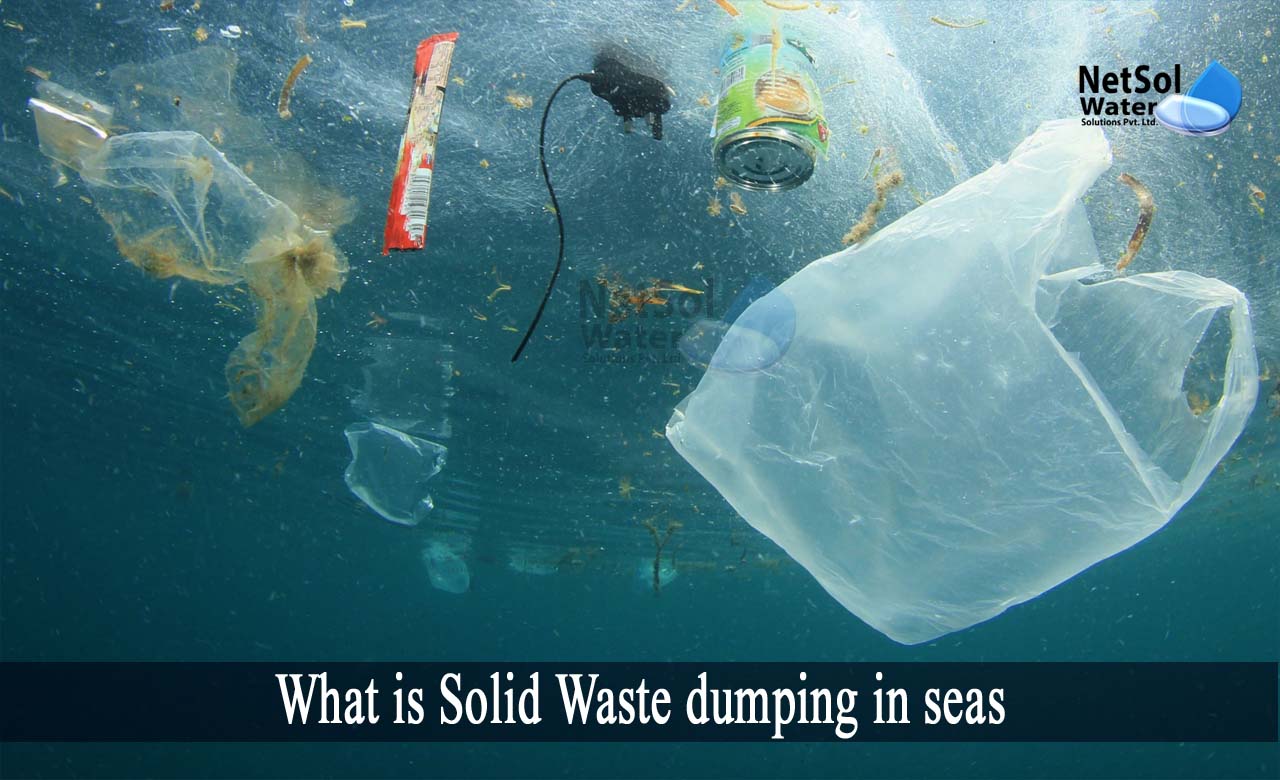What is Solid Waste dumping in seas?
It is a well-known fact that water covers almost 70% of the globe in the form of various water bodies, such as oceans, lakes, and rivers, among others. All of these bodies of water, particularly the oceans and seas, are an essential element of our existence, since they play critical roles in our daily lives.
Careless human interference has harmed the oceanic ecology, compromising the survival of several different species, including humans. The biggest source of pollution in seas and bodies of water is solid waste disposal and dumping. Therefore, it becomes important to avoid disposing of solid waste into oceans or seas.
Pollution in Oceans
Dumping sewage or solid waste into the ocean has traditionally been seen, to be the cheapest and easiest way to dispose of waste. Every year, billions of tons of litter wind up in the water, bringing 250 million tons of waste into the sea.
Solid waste disposal in seas
The deliberate disposal of wastes or other matter from vessels, airplanes, platforms, or other man-made structures, into the sea is described as the solid waste disposal in sea.
The dumping of waste is at the top of the list of activities that contaminates the ocean. Therefore,dumping is the practice of depositing all waste items from factories and industries, tankers and ships, and sewerage waste materials, into oceans and seas.
Effects of dumping industrial waste into the oceans and seas
Some of the elements emitted by industrial waste, sewage and solid waste include mercury, DDT, plastics, micro plastics, etc. Some industrial waste contains radioactive elements. Even modest doses of these drugs have a detrimental impact.
The scope and volume of ocean dumping are not only large, but so massive that the intensity of irresponsible dumping might wipe out our entire civilisation.
Effects of dumpingmunicipal waste into the oceans and seas
Beaches littered with plastic waste are not uncommon these days. Aside from a substantial portion of industrial waste, the dumping of plastic is another major source of pollution, as it gradually leads to negative consequences.
Plastic and other non-biodegradable materials will not be absorbed and recycled. When sea creatures and even birds unintentionally consume plastic, they choke on it, causing a slow drop in their population.
How can we avoid dumping solid waste into the sea?
The greatest solution is to prevent sea dumping from occurring, saving money on clean-up, preventing chemicals and pollutants from entering ground water, and preventing rodents and mosquitoes from breeding.
Here are some crucial elements to consider, in order to avoid illegal dumping of solid waste into the seas or oceans.
- Educate the public on the costs, chemical hazards, and dangers of unlawful dumping, through schools and community awareness groups.
- Make safe, public-friendly waste disposal solutions available and publicize them.
- Make rules that inflict heavy fines on perpetrators, and publicize these stiff punishments.
- Before disposing of waste, use innovative technology to recycle it.
- Use social media to solicit public assistance in identifying the criminals.
- Reduce your reliance on single-use plastics.
- Take part in (or organize) a beach or river clean-up.
Conclusion
Solid waste pollution is one of the most serious risks to global ocean health. However, there are numerous solid waste pollution remedies, which you may implement right now.
How can we assist?
Netsol Water recognizes the importance of providing modern solutions, for proper solid waste management in the seas. As a result, we provide solid waste converters, waste recyclers, green waste recyclers, and many more products, to avoid solid waste dumping into seas.



